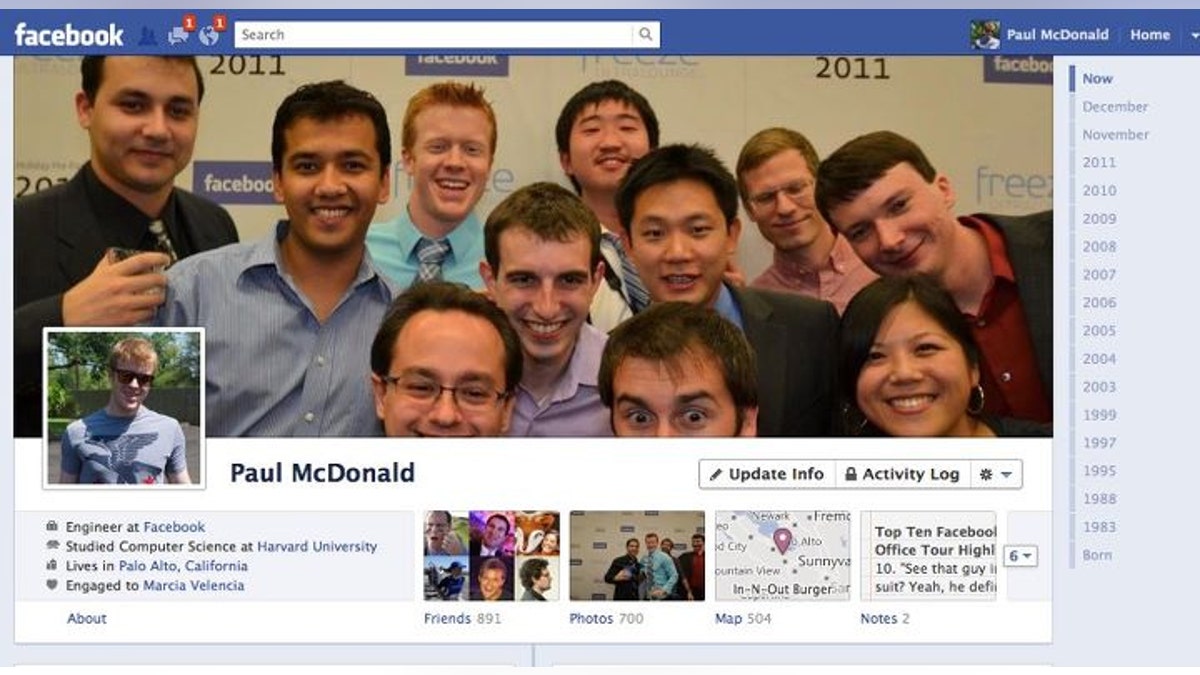
Facebook's biggest makeover to date, called Timeline, went live worldwide in September 2011. (Facebook)
Mark Zuckerberg probably doesn’t like this at all.
Satisfaction with social-networking powerhouse Facebook has slumped, according to the latest survey from the American Customer Satisfaction Index -- hitting a new record-low score in the social media category that placed it among the five lowest-scoring companies of the more than 230 surveyed.
The main reason? User complaints about changes to Facebook’s user interface, according to the survey, most recently the introduction of the Timeline feature.
Meanwhile, Google’s social networking entry hit the survey for the first time, with a surprisingly strong score. Google+ earned a 78 our of 100, compared with Facebook’s 61. According to the report, The strong showing for Google+ is a result of an absence of traditional advertising and what is seen as a superior mobile product.
Those strengths may be Facebook’s weaknesses, an analysis of the survey suggested.
“Facebook and Google+ are competing on two critical fronts: customer experience and market penetration. Google+ handily wins the former, and Facebook handily wins the latter, for now,” said Larry Freed, president and CEO of ForeSee ,which partnered with the ACSI to release the survey.
“It’s worth asking how much customer satisfaction matters for Facebook, given its unrivaled 800 million user base … if Facebook doesn’t feel the pressure to improve customer satisfaction now, that may soon change.”
Despite the strong showing by Google, the survey showed the social media category as a whole to be down 1.4 percent. Three other social media websites make their debut: Pinterest (which scored a 69), LinkedIn (63), and Twitter.com (64).
Scores for LinkedIn and Twitter.com are well below the category average, the survey noted. And Google’s other social media property, YouTube, slips a point to 73, but still scores above the category average.
Claes Fornell, ACSI chairman and author of “The Satisfied Customer,” argued that happy customers will remain customers.
“Our research shows that customer satisfaction is critical for financial performance, as long as consumers have choice and repeat business is important.”
